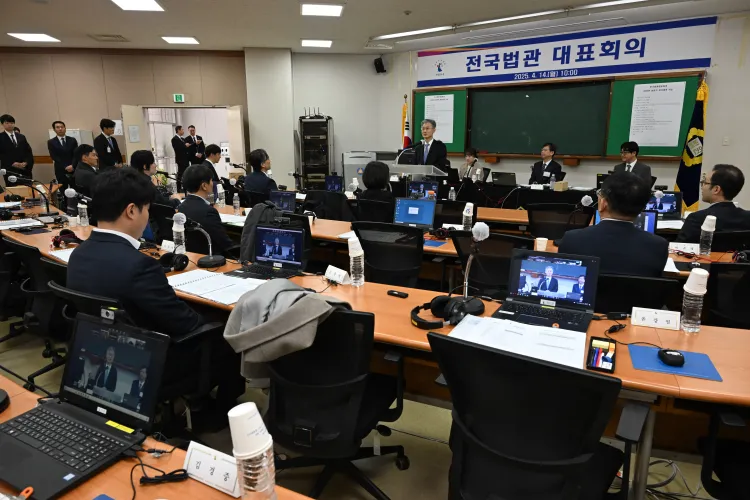What Will Judges Discuss Regarding Lee Jae-myung's Election Law Violation?

Synopsis
Key Takeaways
- Judges nationwide will meet to discuss Lee Jae-myung's case.
- The meeting addresses judicial neutrality concerns.
- Supreme Court's quick decision raises suspicion.
- A guilty verdict could impact the June election.
- Democratic Party's actions may threaten judicial independence.
Seoul, May 9 (NationPress) An extraordinary meeting of judges across the nation is scheduled for later this month to address the controversy linked to South Korean presidential candidate Lee Jae-myung's election law violation case, as stated by a judges' association on Friday.
The gathering will take place on May 26 at the Judicial Research and Training Institute located in Goyang, to the northwest of Seoul. This meeting was initiated by a request to its chair, Judge Kim Ye-young of the Seoul Southern District Court, highlighting the necessity to deliberate and establish a unified stance regarding the suspicions concerning the political neutrality of the courts and the resultant impact on public trust in the judiciary.
Concerns have emerged following the Supreme Court's remarkably swift decision last week to remit Lee's case back to the Seoul High Court for a retrial, citing mistakes made in acquitting the presidential frontrunner of charges related to false statements during the 2021 presidential race, as reported by Yonhap news agency.
The liberal Democratic Party (DP) of Lee has condemned this decision as an act of interference in the upcoming June 3 presidential election, as a guilty verdict could prevent him from participating.
The judges' association noted that the meeting was requested after fulfilling the condition of receiving consent from at least one-fifth of its members.
This association consists of delegates representing judges from various court levels across the nation, currently totaling 126 members, inclusive of the chair.
Key subjects for discussion at the meeting are anticipated to involve whether to express concern regarding the Supreme Court's rapid ruling, which raises questions about its political neutrality. Another point of contention will likely be whether the DP's demands for Supreme Court Chief Justice Cho Hee-dae's resignation constitute an infringement on judicial independence.










